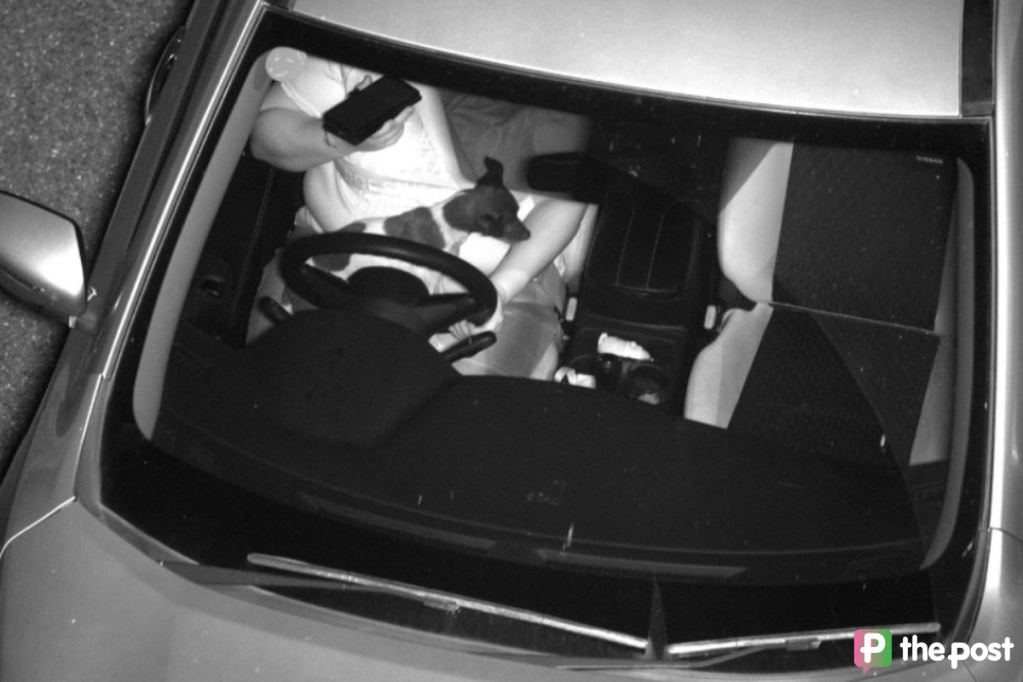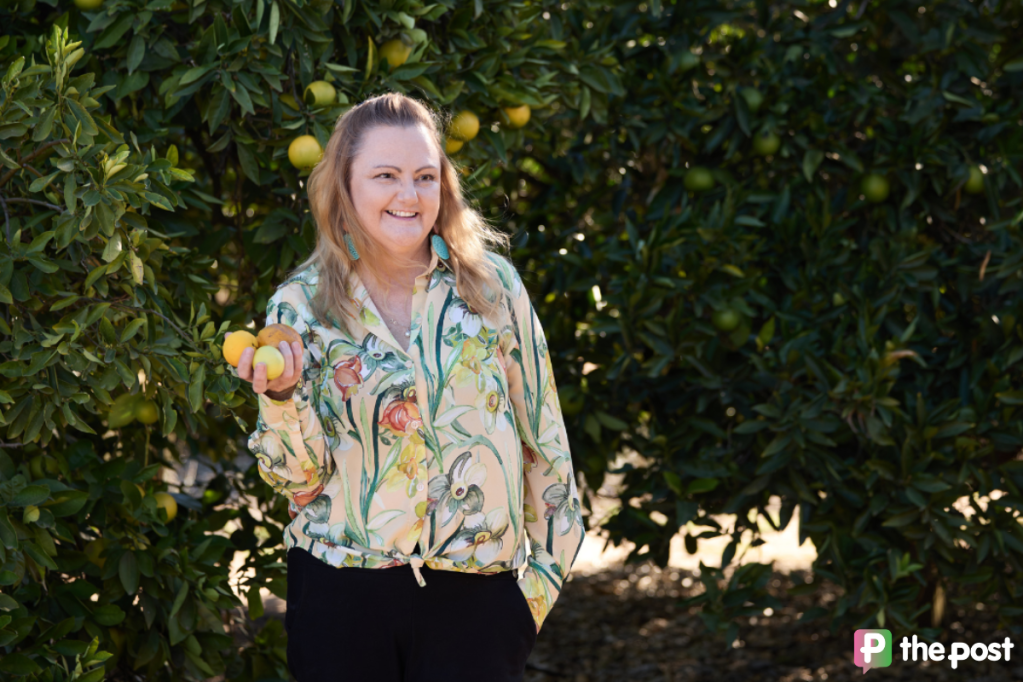Buckley’s chance for a return to Alberton
Nathan Buckley left Port Adelaide as the most-decorated player of the 1992 SANFL season, determined to achieve greatness at Collingwood Football Club. But what if he had returned to Alberton for the AFL? Michelangelo Rucci talks to those who tried to make it happen.

Nathan Buckley is a member of many exclusive football clubs – but not the one he has treasured most.
In 1992, Buckley left Adelaide as the first SANFL player to win the league’s two most-cherished individual awards in the same season; the Magarey Medal as the fairest and most brilliant during the home-and-away season, and the Jack Oatey Medal as best-afield in the grand final.
Only two men, Buckley and Norwood general Mitch Grigg, have this grand honour.
Buckley also had a premiership medal at Port Adelaide – a trophy that defines team success.

Buckley, born in Adelaide in 1972, is unlike most players of the AFL generation. He has no draft number like recent national superstars Luke Hodge (No.1, 2001) or Chris Judd (No.3, 2001). He had his status in AFL recruiting rules defined and complicated by being a resident of Darwin during his early teenage years.
Destiny dictated he enter the expanding national league as a reluctant “Northern Territory zone recruit” for the constantly lampooned Brisbane Bears in 1993 – but he refused to be there for long.
In moving a year later to the game’s biggest club, Collingwood, Buckley achieved in the big league greatness that mirrored and ultimately overwhelmed his exclusive achievements from the SANFL in 1992.
In a crowded trophy cabinet, there is the Brownlow Medal (the Magarey of the AFL) in 2003; the Norm Smith Medal (the Jack Oatey of the big league) in 2002 and every other significant honour in Australian football from All-Australian selection (seven times) to Collingwood’s Copeland Trophy as club champion (six times).
But no AFL premiership medal.
Despite all his individual success, more is made of what Buckley did not achieve. A man who should be defined by his grand achievements is constantly discussed for one absent honour.
Port Adelaide AFL premiership captain and one of Buckley’s compatriots from Alberton and in the Australian Football Hall of Fame, Warren Tredrea knows how so many always look for what is missing: “Premiership player, premiership coach …
“And I think Nathan is a pretty good coach,” adds Tredrea while watching Buckley close his decade-long stint as Collingwood coach on Monday with a 17-point win against Melbourne in Sydney.
“I don’t think any less of Nathan without that premiership on his resume.”
You might like
Everyone reflects on the “sliding door” moment at the end of 1993 (after Buckley was crowned the league’s best first-year player as the Rising Star award winner). He left the Bears, they became Lions by the merger with the bankrupt Fitzroy from 1997 and won three consecutive premierships from 2001-2003, two against Buckley and Collingwood (2002 and 2003).
But there was another moment that could have spared Port Adelaide the “choker” tag for its failed finals campaigns from 2001-2003 and given Buckley the AFL premiership medal that never came at Collingwood, either as a player or a coach.
While Buckley was clearing his locker at Alberton at the end of 1992, Brian “Bucky” Cunningham was returning after a nine-year absence as chief executive, charged with leading the Port Adelaide Football Club’s second attempt for an AFL licence after the civil war in South Australian football forged the Crows in 1990.
Once he had that AFL licence, in December 1994, Cunningham started writing his target list of players to draw back to Alberton from AFL clubs.
“We certainly had a ‘hit list’,” recalls inaugural Port Adelaide AFL president Greg Boulton of his club’s eagerness to secure talent even before the league had established recruiting concessions for the national competition’s 16th team. “And Brian Cunningham spent a long time on chasing players from that list to ensure we made the best-possible start to our AFL campaign or to keep winning premierships in the SANFL.”
“Gavin Wanganeen was No.1,” says Cunningham of the 1993 Brownlow Medallist who had left Port Adelaide for Essendon after the tempestuous 1990 winter of turmoil in South Australian football when the Crows were formed to avert an AFL licence being based at Alberton.
“Nathan Buckley was No.2.”
Decades later, many might raise an eyebrow at Port Adelaide’s priority order among two greats of Australian football.
Wanganeen came home and, after being Port Adelaide’s inaugural AFL captain in 1997, savoured premiership success in 2004.
Buckley stayed at Collingwood and, after stepping down as Collingwood coach on Monday, has no AFL premiership medal as a player or a coach. In 24 seasons without the ultimate team success, Buckley shares the AFL record for the most seasons as a player and coach with no flag. The man who also holds that dubious record – Ross Lyon – is one of the leading contenders to replace Buckley in the Collingwood coach’s box.
In the battle to reclaim Wanganeen from Essendon, Cunningham was regularly flying from Adelaide to Melbourne with the secrecy of an undercover agent or using code names when leaving telephone messages.
“It was never as covert with Nathan as it was with Gavin,” Cunningham recalled to InDaily of the recruiting strategies that unfolded from 1995 while Port Adelaide waited for its entry date to the national league (that became 1997 after being first slated at 1996).
“I spent a lot of time with Nathan at his house. We’d meet with his agent, Geof Motley,” said Cunningham referring to the Port Adelaide premiership captain and 1964 Magarey Medallist. “And Geof did exactly as a player manager should – he worked the meetings for Nathan.”
Buckley was in his second season at Collingwood, and there was that parting message on leaving Alberton that he would come back to Port Adelaide “one day”. Even so, Cunningham was facing a difficult task in luring Buckley “home”, even if his transfer would have cost nothing under AFL expansion recruiting rules. This was Port Adelaide’s best chance to secure a “franchise” player who was destined to become a genuine league superstar.
“Nathan did consider what we were offering for a long time,” Cunningham said. “It was unlikely that he would have come back to Port Adelaide so soon after he had joined Collingwood – and he had always wanted to play for Collingwood.
“He gave us really due consideration. He wasn’t flippant. We did have quite a few meetings, probably across 18 months to two years from early 1995. Missing out on AFL entry in 1996 gave us an extra year to keep making our case.
“We were selling the chance to come back to a club where Nathan had enjoyed success, both individually and as a premiership player. It was not a difficult sales pitch when Nathan already knew what he could expect at Port Adelaide. He knew he would be joining a good footy club.
“We canvassed a possible leadership role – not captain, but as part of the team leadership.
“We emphasised we will be putting together a competitive list from the start. It was a hard sell, and Nathan always was very respectful in how he would take to our meetings.
“But Collingwood was a bigger club than us. He already had made the move from Brisbane to be doing what he always wanted to do at Collingwood. So he did not come. Gavin did. If we had signed both of them, who knows …
“Gavin played such an important part of our start in the AFL and our premiership success in 2004. Nathan Buckley, not to underplay it, would have been pretty useful – he was an outstanding talent as a player.”
Tredrea is cautious in trying to rewrite history.
Stay informed, daily
“We would have been more competitive with Nathan at the start, not that we weren’t,” says Tredrea of a Port Adelaide that was on the verge of the AFL top-eight rankings in 1997 and 1998 and a finalist in 1999.
“But there is a knock-on effect of Port Adelaide being a better team at the start with Nathan Buckley. We would not have had that horror year in 2000 and that might have made it harder to trade for (key defender) Darryl Wakelin from St Kilda or to get Shaun Burgoyne in the draft – two players who were critical to our 2004 premiership.
“Yes, we would have been stronger with Nathan Buckley at Port Adelaide. But would we have won more than one AFL premiership? I don’t know.”
For the record, Buckley had a losing record as a player against Port Adelaide – six wins, seven losses.
Cunningham’s offers to Buckley were not loaded with big money.
“We were conservative and we probably did not offer enough at the end,” Cunningham said. “We had a big crack at Nathan, but we were a bit shy in throwing around money. That changed by the time we tried to recruit (Western Bulldogs key forward) Chris Grant (who famously stayed loyal to his club after being sent an emotional letter containing 20 cents from a young Bulldogs fan breaking the piggy bank to fight off Port Adelaide’s advances).”
Wanganeen was fulfilled at Port Adelaide, even though he had to wait seven years for a premiership – and had to deal with his own questions of his move after Essendon won the 2000 AFL flag.
Buckley gained no premiership medal in 260 games as a Collingwood player and 218 matches as a coach. And now there is the lingering question of being “unfulfilled” simply because there is no AFL premiership on his long list of honours and achievements.
The club of supposedly “unfulfilled” footballers is not so exclusive in a competition that ignores many stories of success during a season in which there is just one winner universally acknowledged – the premiership team.
It is a roll call of greats. Recently it has added Gary Ablett senior, Australian Football Hall of Fame legends Tony Lockett and Bob Skilton, Brownlow Medallist Robert Harvey, Melbourne club icon Robert Flower, St Kilda spiritual leader Nick Riewoldt … and Nathan Buckley.
And there are some famous mistimed shifts – such as Buckley’s from Brisbane to Collingwood – that famously backfired. In the SANFL, ruckman Dexter Kennedy left West Adelaide, where he held the league record as the youngest player to make his senior debut at age 15 years, 11 months and two days in 1970, to join Port Adelaide after 237 games at the end of 1982. He watched West Adelaide win the premiership in 1983.
In the AFL, South Australian Ryan Griffen left the Western Bulldogs at the end of 2014 after 202 game, and was at Greater Western Sydney while the old Footscray ended its 62-year premiership drought in 2016.
On retiring as a player without an AFL premiership at the end of 2007, Buckley was left to find that “fulfillment” as a coach. On leaving the Collingwood coaching role, Buckley says of that “unfulfilled” tag: “My coaching career has mirrored my playing career pretty closely, if I’m talking about it from my perspective.
“Ultimately, to not have been part of a premiership, if I reflect back to what I would’ve thought 20 years ago, I think I would’ve been absolutely gutted and shattered by it.
“I’m disappointed (but) I’m definitely not unfulfilled, because the journey itself has been tremendously fulfilling.
“Bar a kick here or there, I wouldn’t change much,” added Buckley who lost the 2002 AFL grand final as a player by nine points to Brisbane and the 2018 grand final as a coach by five points to West Coast.
One of the men who stopped Buckley achieve premiership success in the 2002 grand final, Brisbane triple-premiership forward Jonathan Brown, says Buckley should not feel unfulfilled, when “his contribution to the Collingwood Football Club and our game in general has been amazing – he has been close to the top of the mountain on several occasions, as a player and a coach”.
Tredrea ranks Buckley among the top three of his era during the 1990s and early 2000s, sandwiched between fellow Brownlow Medallists who also have AFL premiership medals – Michael Voss and James Hird.
“Voss is No.1 because he was super tough and could play anywhere,” Tredrea said. “Buckley was the most talented. And Hird did not give us (at Port Adelaide) half the headaches that Buckley did.
“They always will be the ‘Big Three’ of my time and that does not change by Nathan being without a premiership as a player.”
Buckley’s AFL playing career did not begin at Collingwood, and his coaching career might not end with Collingwood either. He does note: “I think I may have died during the week; there were a lot of eulogies that were handed out.”
Buckley is 48. He still has much time to add more and more of his imprint on Australian football.
“Anything Nathan does next, he will grab with both hands,” says Cunningham. “I admire everything about Nathan. He has his detractors, but I did (while working as a consultant with the football staff at Collingwood) see how good Nathan was as a coach. He really cared about the game, the people and the club.”
Another chapter seems inevitable in the Buckley football book.
Perhaps he will finally return to Alberton to match his SANFL premiership success with a successful coaching stint.








